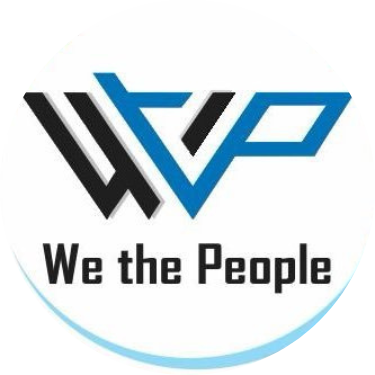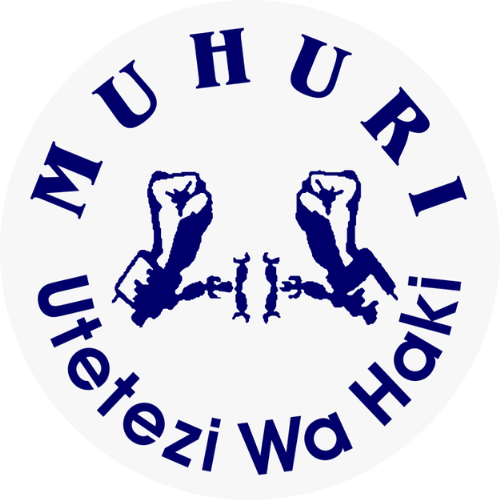Read the latest People’s Health Hearing Collective statement on COP28
The People’s Health Hearing Collective
The People’s Health Hearing is a global collective that emerged in the lead up to COP26 in Glasgow in an attempt to highlight the root causes of the climate crisis and health injustice – colonialism and racial capitalism. We focus on the struggles of frontline communities facing extractivism, dismantling knowledge hierarchies and collectively visioning for reparative justice. We are rooted in the health justice, racial justice, environmental justice and climate justice movements, recognising that these struggles are interconnected. We held our first People’s Health Hearing at COP26, and most recently a People’s Health Tribunal of Shell & Total in Africa in May 2023.
We are deeply committed to prefiguring the radical and liberatory futures we want to live in. The below is a collectively written, living summary that aims to share our intentions for the People’s Health Hearing collective – as an ongoing, emergent organising space – and the organising principles that guide our collective practice. We share this in the spirit of transparency of and accountability for our processes. We are committed to always prioritising platforming those who are excluded from mainstream climate and health discourses, marginalised voices and radical voices.
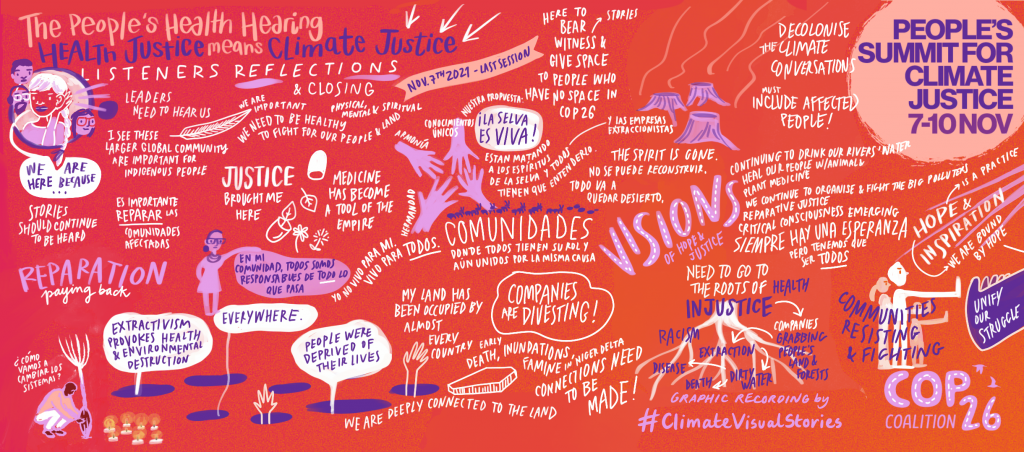
Vision
The People’s Health Hearing aims to bear witness to the public and collective health impacts of extractive industries and the climate crisis & provides a space to connect to people’s struggles and set out a vision for intersectional, transformative, global, health and climate justice. Our focus is on organising towards accountability and reparative justice for the health harms of extractivism.
This collective centres a collective, political and ecological understanding of health in its most expansive sense. We view health justice as healing for all oppressed peoples, as healthy ecosystems and territories, and as community collective care. We understand health as the embodiment of systems and relationships, including relationships with the land and community, and try to develop health as a tool in the struggle for climate justice.
Intentions
- NURTURE RELATIONSHIPS ACROSS TIME, GEOGRAPHIES AND DISCIPLINES
To deepen relationships and build the movement for transformative health and climate justice. To cultivate the exchange of solidarity and redistribution of power between the global South and the global North in order to knit resistances, and make legible shared structural root causes of injustices. - HOLD SPACE FOR AND HONOUR TESTIMONY
For people and communities most impacted to share their stories directly of how extractive systems are harming public/collective health. To share stories of hope and resistance – a space to learn from struggles and how this can inform organising going forward. - GROW A STRUCTURAL UNDERSTANDING OF HEALTH AND CLIMATE INJUSTICE
To reflect on and build consciousness of how systems of oppression perpetuate and drive extractivism, health injustices & climate breakdown. - DEMAND ACCOUNTABILITY
To hold those in power to account over inaction and being directly complicit in generating environmental and health injustices. To spur deep solidarity and generate action to fight the harmful practices and violence of extractive corporations, banks and governments, particularly from the global North. - VISION AND BUILD TOWARDS REPARATIVE JUSTICE
To work towards the healing of peoples and territories harmed by extractivism by connecting the struggles we organise around, seeking to end violence where it exists, and ensuring we are working towards alternatives systems that centre care, repair and healing. To centre imagination and give space to enquire into broad and expansive visions of reparations and justice. - EMBRACE EPISTEMOLOGICAL PLURALITY + EPISTEMIC JUSTICE
To dismantle perceived hierarchies of knowledge – whose stories and knowledges, in what form, count in determining action. To value storytelling as an essential and powerful movement praxis.
Health and climate justice lineages
We honour and learn from the histories of movements and community based resistance to extraction.
We reject attempts to ‘address’ the climate crisis by continuing and deepening ‘green’ extractivism, recognising this as a continuation of colonialism and knowing it will fail to deliver environmental or health justice. Please see: Breaking free from tunnel vision for climate change and health | PLOS Global Public Health
We draw inspiration and lineage from the many communities, scholars and activists who have resisted the violations of health created by extractivism, and the many Indigenous cosmovisions which centre an ecological, relational understanding of health. Please see: Beyond Development and Extractivism • SftP Magazine:
This is a critical space which also explores how the health community has been and continues to be shaped by and perpetuates oppressive systems. It is a space to challenge the narrow, disconnected understanding of health promoted by colonial capitalism, and organise to transform health into a tool for solidarity, radical imagination and resistance.
We are especially grateful to the practise of body-territory mapping which informs the relationship between health and extractivism, and to the work of Damiàn Verzeñassi and Erika Arteaga-Cruz at the InSSA (Instituto de Salud Socioambiental FCM-UNR) Universidad Nacional de Rosario/Argentina. Please see: Cuerpo-Territorio
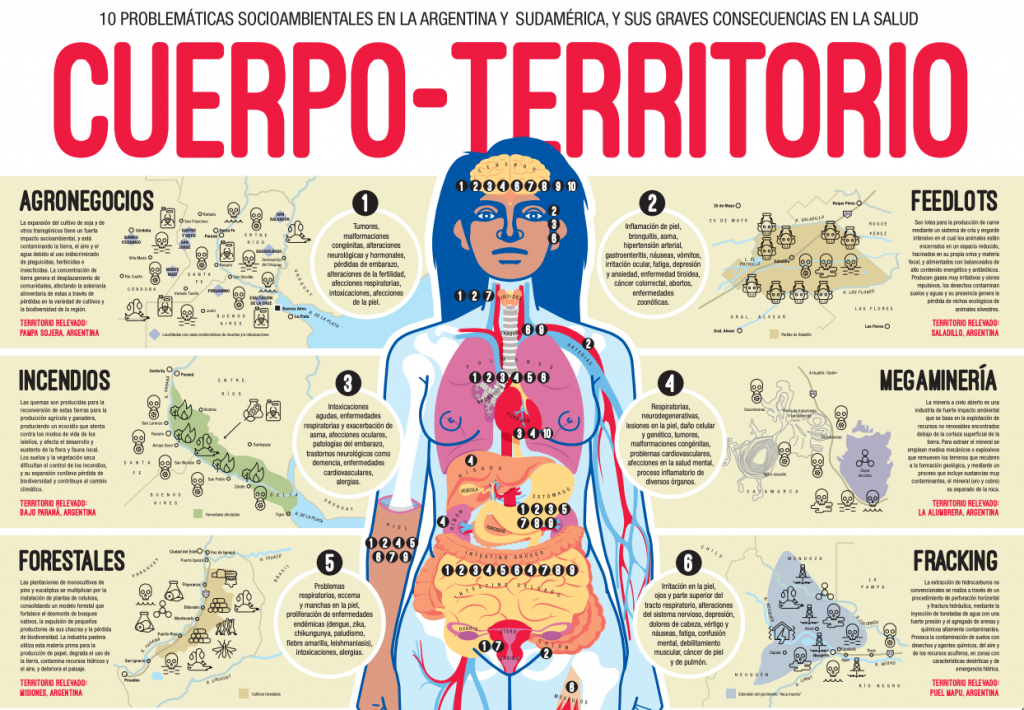
Our work builds on the long history of People’s Hearings and People’s Tribunals, in particular we are grateful to the Tribunal Popular Internacional de Salud against Gold Corp, held by mining affected communities in Guatemala. Please see: Verdict | Health Tribunal
We draw on the work of the People’s Health Movement Ecosystems and Health circle, Medact, the Climate Reparations Network, and Race and Health, which many of the collective members are also part of and who we work closely with. We also draw on the work of Ruth Wilson Gilmore, Centric Lab, adrienne maree brown and Emergent Strategy, Staci Haines, Erika Arteaga-Cruz, Nnimmo Bassey, Kanahus Manuel, Jacqui Patterson, Dimah Mahmoud, Richenel Ansano, Aurora Levins Morales, Berta Caceres, Chico Mendez, Ghaassan Kanafani, Franz Fanon, Alberto Acosta and Nawal Al-Saadawi.
Organising Principles for Our Collective Practice
Trust and accountability
We have been working together since 2021 and have built connections with groups around the world. We attempt to organise in a relational way, focussing on building deep trust which nurtures relationships within and beyond the collective.
We are accountable to those in the movement and all the organisations involved in the People’s Health Hearing at COP26, the People’s Health Tribunal of Shell & Total in Africa and our wider ecosystem of relationships. This includes We The People Nigeria, Stop EACOP, Tasha research institute, Post-Extractive Futures, the People’s Health Movement Ecosystems and Health Circle, Medact, Race and Health, MUHURI, Tipping Point and many more. Even more so, we are accountable to people and communities who have given testimony and acted as listeners and judges at the Hearing and the Tribunal.
At its core, our organising is solidarity-driven. We seek to be led by people and communities on the frontlines of climate violence, holding space for groups to participate in ways that meet their needs, whilst being reflective of the structural barriers to participation.
Power and positionality
We share a systemic analysis which acknowledges oppressive systems enacting structural violence such as white supremacy, colonialism, cisheteropatriarchy and capitalism. These systems affect all of us differently, yet we are united in challenging them together, bound by the knowledge that none of us is free until we are all free.
We include people who work for small and medium-sized organisations in the global North and the global South, health workers, students, and grassroots campaigners, most of whom are volunteers and a few who are paid for their time. We critically reflect on our position in close relation to and/or part of movements struggling for climate justice in the global North. We seek to use this position to build and deepen solidarity within these spaces. We seek to actively redistribute resources to comrades who are on the frontlines of extractivist struggles.
The collective is formed of majority people who are racialised; a mixture of people who have roots, live and work in the global South and the global North; people who identify as non-binary, women and men; and queer people.
We have created space to raise issues of power and discuss power dynamics within and beyond the group. Last year we participated in an externally facilitated session to explore the collective’s power dynamics. Within the collective, we seek to intentionally reflect on our positionality as we organise together. Within the wider health and climate justice movements, we reflect on how we are engaging as part of a wider ecosystem. Our Care Working Group helps to facilitate these reflective spaces and ensure we prioritise time for collective learning.
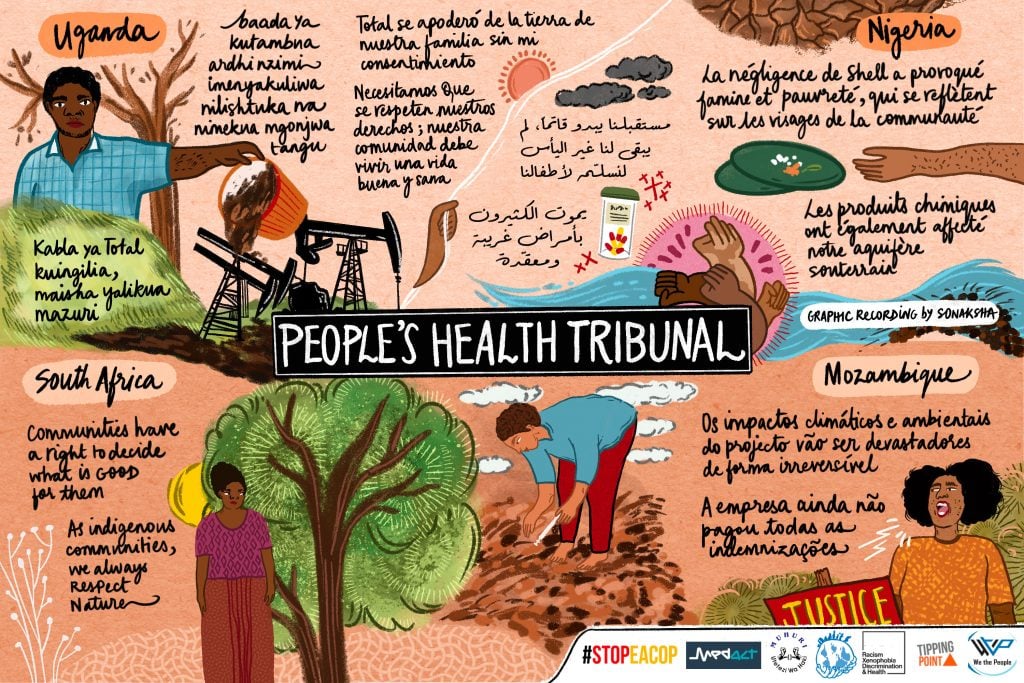
Collective care
We are committed to care-ful and joyful orientations of practice. Within our team, this manifests as thinking critically about the pace of the work and prioritising relationships and ongoing solidarity. Central to this is a dynamic and ongoing interrogation of the power dynamics between groups, how the resourcing of movement work is understood and reflecting on how the above show up within the team. We seek to recognise and address tensions and surface challenges around interpersonal and structural power dynamics. As an example, last year we made the decision to slow down and postpone the tribunal to prioritise trust over productivity.
Consensus decision-making
Decisions are made seeking consensus from the group. The collective is coordinated by a core team who represent the above-mentioned organisations and others, formed of roughly 15 people who collectively make strategic decisions. The wider collective, including people involved in the Hearing and the Tribunal, are involved at different relevant stages of decision making. We are also divided into working groups focusing on different aspects of the work such as funding, care, campaigning and knowledge exchanges. Within and across these groups, we make decisions using a consensus based approach on the overarching plans we have collectively decided to follow.
Holding different ways of knowing
We wish to cultivate a space that invites plural forms of knowing. Materially, language justice is one aspect of this. Interpretation and translation is available in all workshops and event spaces. However, we recognise that in many cases translation is still between colonial languages, and that the working language of the organising group is English.
Contact
Tatiana Garavito: [email protected]
Ben Eder: [email protected]



